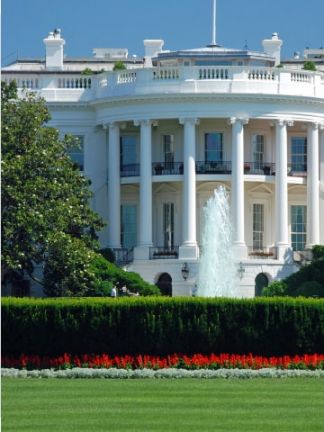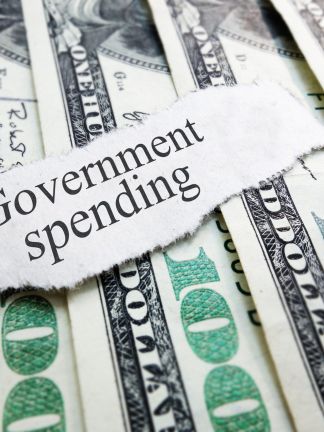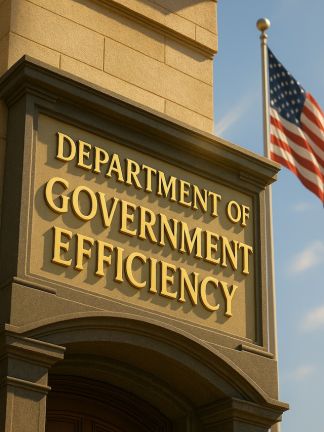Utah Resolution Claims Pornography is a ‘Health Crisis’ — Lawmakers Want to Handle it Like Tobacco

Published in First Amendment - 4 mins - Mar 15
Utah Resolution Claims Pornography is a ‘Health Crisis’ — Lawmakers Want to Handle it Like Tobacco
This article was featured in our weekly newsletter, the Liberator Online. To receive it in your inbox, sign up here. Small government and libertarian advocates often like to poke fun at the nanny state. Now, it just got easier. According to Fox News, the Utah House of Representatives has just passed a resolution that declares pornography a “public health crisis.” The resolution is causing quite the uproar, especially among people who are concerned about the potential ramifications. According to S.C.R. 9, “pornography is a public health hazard leading to a broad spectrum of individual and public health impacts and social harms.” Representatives who authored the resolution state in the document that there’s a “need for education, prevention, research, and policy change at the community and societal level,” which must address the “pornography epidemic that is harming the citizens of Utah and the nation.”
While the resolution is nonbinding and is incapable of effectively banning the production or consumption of pornographic material, the fact lawmakers came together to bring this to light seems somewhat unsavory. Especially when you consider the limited role the legislature should have in the private lives of citizens.
“Society must see this evil like the epidemic it is,” said Elder Jeffrey R. Holland, a supporter of the resolution and member of the LDS Church’s Quorum of the Twelve Apostles. “We do need to see this [pornography] like avian flu, cholera, diphtheria or polio, … It needs to be eradicated.”
To Sen. Todd Weiler, a sponsor of the resolution, pornography is “a serious issue.” To the legislator, we must not “pretend that this has no impact on our values and on our society and culture.”
His goal with this resolution is “to start a national movement to do the same thing with pornography—not to ban it, but to protect our children from it.” Seeing Internet providers change their policies in order to adopt an opt-in solution to the pornography issue—much like Great Britain providers already do due to government pressure—is one of the ideas Sen. Weisler would like to see implemented in America. So shouldn’t this pressure come from consumers instead?
While claiming pornography is a public health crisis may seem odd to many of our readers, this isn’t the first time prominent groups make such claims.
In November of 2015, the US Bishops’ Conference condemned the damage of pornograpy during the group’s Fall General Assembly, calling it a public health crisis. While leaders of the Catholic church appear to agree with Sen. Weiler in character, their actions were never interpreted as an effort that could lead to a legal ban or restriction.
According to an article on Utah Political Capitol, what Utah lawmakers may be trying to do in the long run is to restrict pronography through the development of policies that would make pornographic material less accessible to consumers. In other words, handle pornography the same way we handle other “vices.”
“We recognized as a nation a couple of decades ago that tobacco was addictive and it was harmful,” Sen. Weiler told the House Health and Human Services Committee last week. “We didn’t ban tobacco. What we did instead was we changed our approach in order to try to protect children from tobacco,” an effort that Weiler wants to repeat by urging lawmakers to deal with “pornography … more like tobacco and alcohol.”
According to Heartland Institute, “sin taxes” and other efforts to discourage individuals from consuming products deemed “harmful” are discriminatory, and often represent a disproportionate burden to lower- and middle-income people. If Utah decides to take that path, effectively applying “sin taxes” to pornography, history shows us that consumers will end up relying more on the black market for their needs.
Is that an effective way to keep our children away from products deemed “unhealthy?”
According to S.C.R. 9, “pornography is a public health hazard leading to a broad spectrum of individual and public health impacts and social harms.” Representatives who authored the resolution state in the document that there’s a “need for education, prevention, research, and policy change at the community and societal level,” which must address the “pornography epidemic that is harming the citizens of Utah and the nation.”
While the resolution is nonbinding and is incapable of effectively banning the production or consumption of pornographic material, the fact lawmakers came together to bring this to light seems somewhat unsavory. Especially when you consider the limited role the legislature should have in the private lives of citizens.
“Society must see this evil like the epidemic it is,” said Elder Jeffrey R. Holland, a supporter of the resolution and member of the LDS Church’s Quorum of the Twelve Apostles. “We do need to see this [pornography] like avian flu, cholera, diphtheria or polio, … It needs to be eradicated.”
To Sen. Todd Weiler, a sponsor of the resolution, pornography is “a serious issue.” To the legislator, we must not “pretend that this has no impact on our values and on our society and culture.”
His goal with this resolution is “to start a national movement to do the same thing with pornography—not to ban it, but to protect our children from it.” Seeing Internet providers change their policies in order to adopt an opt-in solution to the pornography issue—much like Great Britain providers already do due to government pressure—is one of the ideas Sen. Weisler would like to see implemented in America. So shouldn’t this pressure come from consumers instead?
While claiming pornography is a public health crisis may seem odd to many of our readers, this isn’t the first time prominent groups make such claims.
In November of 2015, the US Bishops’ Conference condemned the damage of pornograpy during the group’s Fall General Assembly, calling it a public health crisis. While leaders of the Catholic church appear to agree with Sen. Weiler in character, their actions were never interpreted as an effort that could lead to a legal ban or restriction.
According to an article on Utah Political Capitol, what Utah lawmakers may be trying to do in the long run is to restrict pronography through the development of policies that would make pornographic material less accessible to consumers. In other words, handle pornography the same way we handle other “vices.”
“We recognized as a nation a couple of decades ago that tobacco was addictive and it was harmful,” Sen. Weiler told the House Health and Human Services Committee last week. “We didn’t ban tobacco. What we did instead was we changed our approach in order to try to protect children from tobacco,” an effort that Weiler wants to repeat by urging lawmakers to deal with “pornography … more like tobacco and alcohol.”
According to Heartland Institute, “sin taxes” and other efforts to discourage individuals from consuming products deemed “harmful” are discriminatory, and often represent a disproportionate burden to lower- and middle-income people. If Utah decides to take that path, effectively applying “sin taxes” to pornography, history shows us that consumers will end up relying more on the black market for their needs.
Is that an effective way to keep our children away from products deemed “unhealthy?”

Alice
Author
Advocates for Self-Government is nonpartisan and nonprofit. We exist to help you determine your political views and to promote a free, prosperous, and self-governing society.
What do you think?
Did you find this article persuasive?
Unpersuasive
Neutral
Very Persuasive
Subscribe & Start Learning
What’s your political type? Find out right now by taking The World’s Smallest Political Quiz.


























